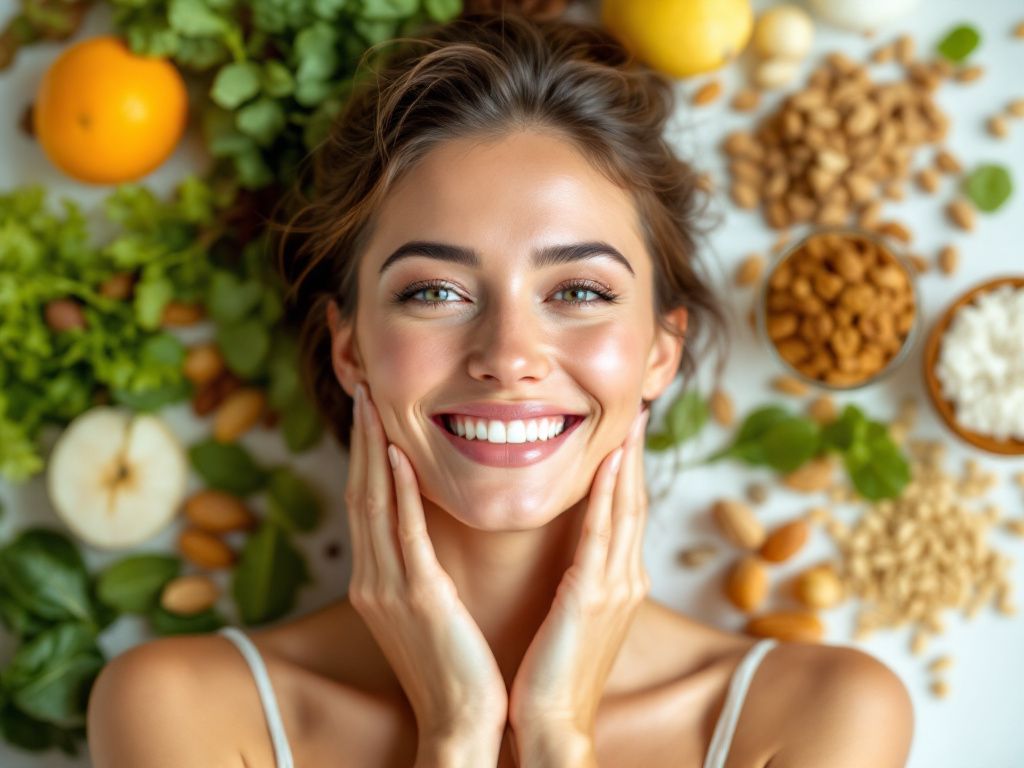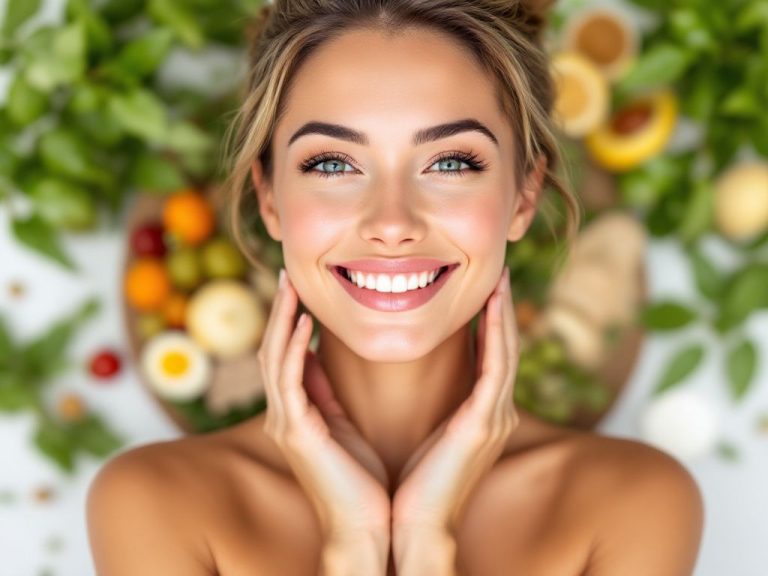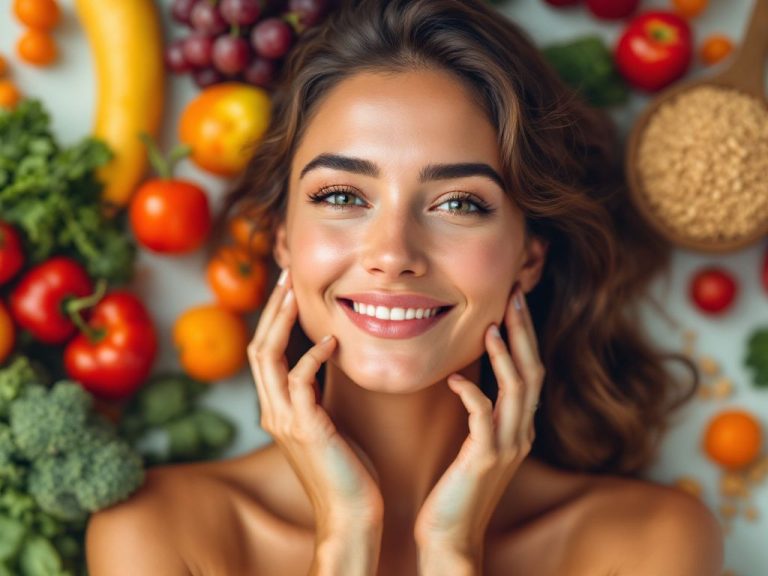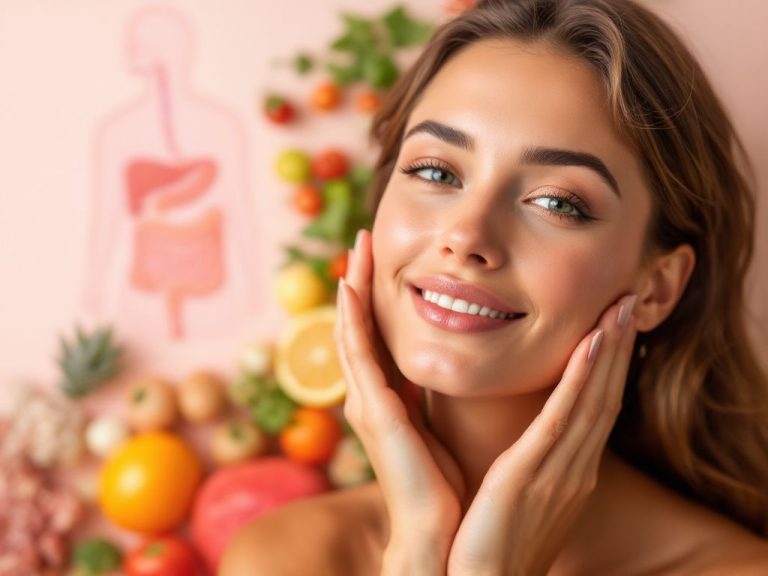Alright, let’s dive into it. How many times have you scoured the skincare aisle hoping for a miracle potion that promises a flawless complexion, only to find out it can’t quite work its magic? If I had a dime for every time… Right? Here’s the thing—you might want to focus less on the stuff you slather on your face and more on what you’re putting in your body. Trust me, B-vitamins are your skin’s secret weapon, and we’re going to talk all about it.
You might be wondering why B vitamins, right? Well, these mighty nutrients are way more than just that daily supplement you occasionally pop. Let’s get into the nitty-gritty of how integrating foods rich in B vitamins can transform your skin health.
Table of Contents
ToggleThe Power of B-Vitamin Benefits: Skin Transformation From the Inside
First off, B vitamins are like that reliable friend who’s always got your back. They’re not flashy by themselves, but when it comes to enhancing your skin’s natural glow, they pack quite the punch. We’re talking improved hydration, reduced fine lines, and even a smoother texture. These vitamins work as a team—each playing its part in maintaining skin health by helping with cell metabolism, protecting against oxidative stress, and promoting cell renewal.
Now, let’s quickly break down these vitamins with a glance at the major players in the B vitamin world and their specific benefits for the skin:
The B-Vitamin all-stars:
- Vitamin B1 (Thiamine): Though lesser-known in the skincare world, it helps improve circulation and gives your skin a better chance to catch some oxygen.
- Vitamin B2 (Riboflavin): Crucial for skin cell turnover. Revitalize your complexion by incorporating this vitamin into your diet.
- Vitamin B3 (Niacin or Niacinamide): Soothe inflamed skin, and control excess oil for visibly reduced pores.
- Vitamin B5 (Pantothenic Acid): An excellent hydrator. It helps keep your skin moist.
- 5. **Vitamin B6 (Pyridoxine): Tackles hormone-related acne. Give it a shot if you’re battling those annoying breakouts.
- 6. **Vitamin B7 (Biotin): Often highlighted for hair, but it strengthens skin, too.
- 7. **Vitamin B9 (Folate): Assists in cell formation and helps prevent acne.
- 8. **Vitamin B12 (Cobalamin): Essential for cell rejuvenation, adding that fresh look to tired skin.
See? A real powerhouse team. You might recognize some like Niacinamide (B3) from the ingredient list on your skincare bottles—they’re in more places than you might think. Each B vitamin has a unique role, and they all work synergistically to keep your skin in tip-top shape.

Where to Find B-Vitamin Rich Foods
It’s all well and good to talk about these vitamins, but how do you actually eat them? Let’s delve into your kitchen or your local market to identify a few everyday heroes.
A Grocery List of B-Vitamin Foods
leafy greens
Here’s a fact: rich in everything that screams health. They boast Folate and Riboflavin along with a bunch of other vitamins. Think spinach, kale, and Swiss chard.
Lean meats and seafood
Perfect sources for B12 and B6—chicken, turkey, salmon. Satisfy your carnivore cravings while absorbingly essential vitamins.
Whole grains
These guys are a terrific source of B1, B2, and B3. Incorporate oats, brown rice, and barley into your meals.
Eggs

A breakfast favorite that serves up B2 and B7. Don’t ditch the yolk—that’s where the B7’s hiding!
Nuts and seeds
These offer Biotin and several other B vitamins and make for a delightful snack throughout your day.
Dairy products
Get your fill of B2 by integrating milk, cheese, and yogurt into your routine.
Legumes
Chickpeas, lentils, and all those goodies not only pack protein but also are great B-vitamin carriers.
Bring these foods into your culinary repertoire, and your skin will thank you.
How to Boost Your B-Vitamin Nutrient Intake
If you’ve been paying attention (and I hope you are), it’s clear that what’s inside our body matters just as much, if not more, than what goes on our skin.
Let’s brainstorm a few mealtime scenarios to maximize your B-vitamin benefits.
Start with a Hearty Breakfast
Eggs cooked with whole grains and perhaps a side of spinach balance your omelet dietarily—B2, anyone?

Lunchtime Feasting
A bright salad composed of kale, lean turkey slices, and seeds in a delicious homemade yogurt dressing.
Dinner Done Right
Grilled salmon atop a fluffy bed of brown rice with roasted asparagus. Quick, tasty, B-vitamin-loaded.
Even Snacking Adds Up
Everyone loves a good snack—swap out your usual go-tos with B-vitamin-enriched choices such as almonds or cheese cubes. Little swaps matter!
Common Mistakes to Avoid
While we’re still on this B-vitamin kick, it’s easy to go a little overboard or downright miss the target. It’s fine—a gentle reminder doesn’t hurt.
- Processed Foods Take Over: Sure, they’re convenient, but over-processed foods often lose these crucial vitamins during production stages.
- Vitamins Are an Afterthought: Sometimes we’re too focused on quick fixes, like skincare product stacking, rather than adjusting nutrient intake.
- Resist Wonder Slim-downs: Crash diets might strip off nutrients along with calories, robbing your skin of its essential weaponry.
- No Variety: Always eating the same foods can limit nutrient replenishment—variety is necessary for balanced vitamin intake.
Okay, there we go—a fair set of guidelines to get started, and perhaps break a few old habits in your meal planning.
Wrapping It Up
Let’s zoom out for a bit. It’s easy to get tangled in a web of suggestion, but decoding skin health via nutrition doesn’t have to feel like untying knots. Whatever you do, remember your skin is more than skin-deep.
Take this whole being a nutrient detective thing one step—preferably a tasty one—at a time. Besides, catered meal plans aren’t what real life is all about. Listen to your likely friend who loves sharing meal snaps on the group chat: focus on nutrient intake, engage naturally into B-vitamin inclusion, and witness pure correlation between these powdered gold miners and a fabulous selfie-ready glow.
The underlying plot we keep meandering towards, though, is straightforward: inner health explosively affects outer radiance. Once you’ve amped up your B vitamin presence, luminous days and vibrant vibes lie ahead. And hey—next time someone corners you with luxury cream chat, you know precisely where the real skincare reset button lies.
Frequently Asked Questions
What are the primary functions of B vitamins in the body?
B vitamins are crucial for various bodily functions, including converting food into energy, supporting the growth, development, and function of cells, and aiding in the production of red blood cells. They also play roles in maintaining healthy skin, brain cells, and other body tissues. Each B vitamin has unique functions, such as thiamine (B1) helping the nervous system, riboflavin (B2) acting as an antioxidant, and niacin (B3) supporting digestive, skin, and nerve function[1][3][5).
How do B vitamins benefit brain function and mental health?
B vitamins, particularly B6, B9 (folate), and B12, are essential for maintaining brain health. They help in the synthesis of neurotransmitters like serotonin and norepinephrine, which regulate mood. Adequate levels of these vitamins can help prevent neurological disorders such as Parkinson’s disease and may improve mood and reduce stress levels. Low levels of B vitamins have been linked to depression and higher stress levels[1][2][5).
Can B vitamins help in preventing or managing health conditions like heart disease and cancer?
B vitamins may have various health benefits, including improving heart health and potentially preventing certain types of cancer. Niacin (B3) can help reduce LDL cholesterol and triglycerides, while folic acid (B9) and vitamin B12 may help lower homocysteine levels, which is associated with heart disease. Additionally, some B vitamins, such as niacin in the form of nicotinamide, have been shown to reduce the risk of non-melanoma skin cancer[1][2][3).
What are the symptoms of a B vitamin deficiency, and who is at risk?
A deficiency in any of the B vitamins can lead to various symptoms. For example, a lack of vitamin B12 can cause fatigue, weight loss, constipation, and neurological symptoms like numbness and tingling. People at risk include those with conditions that interfere with nutrient absorption, older adults, and individuals with certain diseases like celiac disease or Crohn’s disease. Symptoms can also include skin problems, anemia, and neurological disorders depending on the specific vitamin deficiency[1][3][5).
References







